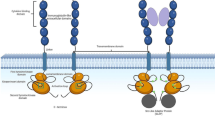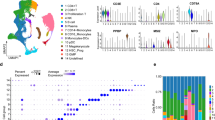Abstract
Polo-like kinase 2 (SNK/PLK2), a transcriptional target for wild-type p53 and is hypermethylated in a high percentage of multiple myeloma and B cell lymphomas patients. Given these data, we sought to study the methylation status of the specific gene in acute myeloid leukemia (AML) and myelodysplastic syndrome (MDS), and to correlate it with clinical and genetic features. Using methylation-specific PCR MSP, we analyzed the methylation profile of 45 cases of AML and 43 cases of MDS. We also studied the distribution of MTHFR A1298C and MTHFR C677T polymorphisms and FLT3 mutations in AML patients and correlated the results with hypermethylation in the SNK/PLK2 CpG island. The SNK/PLK2 CpG island was hypermethylated in 68.9% and 88.4% of AML and MDS cases, respectively. Cases with hypermethylation had a trend towards more favorable overall survival (OS). There was no association between different MTHFR genotypes and susceptibility to develop AML. SNK/PLK2 hypermethylation combined with the MTHFR AA1298 genotype was associated with a tendency for a better OS. Similarly, patients with SNK/PLK2 hypermethylation combined with the MTHFR CT677 polymorphism had a better OS (HR = 0.34; p = 0.017). SNK/PLK2 methylation associated with unmutated FLT3 cases had a trend for better OS compared to patients with mutated FLT3 gene. SNK/PLK2 is a novel epigenetically regulated gene in AML and MDS, and methylation occurs at high frequency in both diseases. As such, SNK/PLK2 could represent a potential pathogenetic factor, although additional studies are necessary to verify its exact role in disease pathogenesis.



Similar content being viewed by others
References
Esteller M (2008) Epigenetics in cancer. N Engl J Med 358:1148–1159
Rush LJ, Plass C (2002) Alterations of DNA methylation in hematologic malignancies. Cancer Lett 185:1–12
Baylin SB (2005) DNA methylation and gene silencing in cancer. Nat Clin Pract Oncol 2(Suppl 1):S4–S11
Robertson KD (2005) DNA methylation and human disease. Nat Rev Genet 6:597–610
Rice KL, Hormaeche I, Licht JD (2007) Epigenetic regulation of normal and malignant hematopoiesis. Oncogene 26:6697–6714
Boultwood J, Wainscoat JS (2007) Gene silencing by DNA methylation in haematological malignancies. Br J Haematol 138:3–11
Donaldson MM, Tavares AA, Hagan IM, Nigg EA, Glover DM (2001) The mitotic roles of Polo-like kinase. J Cell Sci 114:2357–2358
Smith P, Syed N, Crook T (2006) Epigenetic inactivation implies a tumor suppressor function in hematologic malignancies for Polo-like kinase 2 but not Polo-like kinase 3. Cell Cycle 5:1262–1264
van de Weerdt BC, Medema RH (2006) Polo-like kinases: a team in control of the division. Cell Cycle 5:853–864
Cizmecioglu O, Warnke S, Arnold M, Duensing S, Hoffmann I (2008) Plk2 regulated centriole duplication is dependent on its localization to the centrioles and a functional polo-box domain. Cell Cycle 7:3548–3555
Winkles JA, Alberts GF (2005) Differential regulation of polo-like kinase 1, 2, 3, and 4 gene expression in mammalian cells and tissues. Oncogene 24:260–266
Ma S, Charron J, Erikson RL (2003) Role of Plk2 (Snk) in mouse development and cell proliferation. Mol Cell Biol 23:6936–6943
Burns TF, Fei P, Scata KA, Dicker DT, El-Deiry WS (2003) Silencing of the novel p53 target gene Snk/Plk2 leads to mitotic catastrophe in paclitaxel (taxol)-exposed cells. Mol Cell Biol 23:5556–5571
Eckerdt F, Yuan J, Strebhardt K (2005) Polo-like kinases and oncogenesis. Oncogene 24:267–276
Krämer A, Neben K, Ho AD (2005) Centrosome aberrations in hematological malignancies. Cell Biol Int 29:375–383
Matthew EM, Hart LS, Astrinidis A, Navaraj A, Dolloff NG, Dicker DT, Henske EP, El-Deiry WS (2009) The p53 target Plk2 interacts with TSC proteins impacting mTOR signaling, tumor growth and chemosensitivity under hypoxic conditions. Cell Cycle 8:4168–4175
Hatzimichael E, Dasoula A, Benetatos L, Syed N, Dranitsaris G, Crook T, Bourantas K (2010) Study of specific genetic and epigenetic variables in multiple myeloma. Leuk Lymphoma 51:2270–2274
Syed N, Smith P, Sullivan A, Spender LC, Dyer M, Karran L, O’Nions J, Allday M, Hoffmann I, Crawford D, Griffin B, Farrell PJ, Crook T (2006) Transcriptional silencing of Polo-like kinase 2 (SNK/PLK2) is a frequent event in B-cell malignancies. Blood 107:250–256
Vardiman JW, Thiele J, Arber DA, Brunning RD, Borowitz MJ, Porwit A, Harris NL, Le Beau MM, Hellström-Lindberg E, Tefferi A, Bloomfield CD (2009) The 2008 revision of the World Health Organization (WHO) classification of myeloid neoplasms and acute leukemia: rationale and important changes. Blood 114:937–951
Valent P, Horny HP, Bennett JM, Fonatsch C, Germing U, Greenberg P, Haferlach T, Haase D, Kolb HJ, Krieger O, Loken M, van de Loosdrecht A, Ogata K, Orfao A, Pfeilstöcker M, Rüter B, Sperr WR, Stauder R, Wells DA (2007) Definitions and standards in the diagnosis and treatment of the myelodysplastic syndromes: consensus statements and report from a working conference. Leuk Res 31:727–736
Malcovati L, Germing U, Kuendgen A, Della Porta MG, Pascutto C, Invernizzi R, Giagounidis A, Hildebrandt B, Bernasconi P, Knipp S, Strupp C, Lazzarino M, Aul C, Cazzola M (2007) Time-dependent prognostic scoring system for predicting survival and leukemic evolution in myelodysplastic syndromes. J Clin Oncol 25:3503–3510
Fröhling S, Scholl C, Gilliland DG, Levine RL (2005) Genetics of myeloid malignancies: pathogenetic and clinical implications. J Clin Oncol 23:6285–6295
Skibola CF, Smith MT, Kane E, Roman E, Rollinson S, Cartwright RA, Morgan G (1999) Polymorphisms in the methylenetetrahydrofolatereductase gene are associated with susceptibility to acute leukemia in adults. Proc Natl Acad Sci USA 96:12810–12815
Cheson BD, Bennett JM, Kopecky KJ, Büchner T, Willman CL, Estey EH, Schiffer CA, Doehner H, Tallman MS, Lister TA, Lo-Coco F, Willemze R, Biondi A, Hiddemann W, Larson RA, Löwenberg B, Sanz MA, Head DR, Ohno R, International Working Group for Diagnosis, Standardization of Response Criteria, Treatment Outcomes, and Reporting Standards for Therapeutic Trials in Acute Myeloid Leukemia (2003) Revised recommendations of the International Working Group for Diagnosis, Standardization of Response Criteria, Treatment Outcomes, and Reporting Standards for Therapeutic Trials in Acute Myeloid Leukemia. J Clin Oncol 21:4642–4649
Nimer SD (2008) Myelodysplastic syndromes. Blood 111:4841–4851
Tefferi A, Vardiman JW (2009) Myelodysplastic syndromes. N Engl J Med 361:1872–1885
Renneville A, Roumier C, Biggio V, Nibourel O, Boissel N, Fenaux P, Preudhomme C (2008) Cooperating gene mutations in acute myeloid leukemia: a review of the literature. Leukemia 22:915–931
Esteller M (2003) Profiling aberrant DNA methylation in hematologic neoplasms: a view from the tip of the iceberg. Clin Immunol 109:80–88
Figueroa ME, Lugthart S, Li Y, Erpelinck-Verschueren C, Deng X, Christos PJ, Schifano E, Booth J, van Putten W, Skrabanek L, Campagne F, Mazumdar M, Greally JM, Valk PJ, Löwenberg B, Delwel R, Melnick A (2010) DNA methylation signatures identify biologically distinct subtypes in acute myeloid leukemia. Cancer Cell 17:13–27
Kroeger H, Jelinek J, Estécio MR, He R, Kondo K, Chung W, Zhang L, Shen L, Kantarjian HM, Bueso-Ramos CE, Issa JP (2008) Aberrant CpG island methylation in acute myeloid leukemia is accentuated at relapse. Blood 112:1366–1373
Deneberg S, Grövdal M, Karimi M, Jansson M, Nahi H, Corbacioglu A, Gaidzik V, Döhner K, Paul C, Ekström TJ, Hellström-Lindberg E, Lehmann S (2010) Gene-specific and global methylation patterns predict outcome in patients with acute myeloid leukemia. Leukemia 24:932–941
Jiang Y, Dunbar A, Gondek LP, Mohan S, Rataul M, O’Keefe C, Sekeres M, Saunthararajah Y, Maciejewski JP (2009) Aberrant DNA methylation is a dominant mechanism in MDS progression to AML. Blood 113:1315–1325
Wu SJ, Yao M, Chou WC, Tang JL, Chen CY, Ko BS, Huang SY, Tsay W, Chen YC, Shen MC, Wang CH, Yeh YC, Tien HF (2006) Clinical implications of SOCS1 methylation in myelodysplastic syndrome. Br J Haematol 135:317–323
Potapova A, Hasemeier B, Römermann D, Metzig K, Göhring G, Schlegelberger B, Länger F, Kreipe H, Lehmann U (2010) Epigenetic inactivation of tumour suppressor gene KLF11 in myelodysplastic syndromes. Eur J Haematol 84:298–303
Shen L, Kantarjian H, Guo Y, Lin E, Shan J, Huang X, Berry D, Ahmed S, Zhu W, Pierce S, Kondo Y, Oki Y, Jelinek J, Saba H, Estey E, Issa JP (2010) DNA methylation predicts survival and response to therapy in patients with myelodysplastic syndromes. J Clin Oncol 28:605–613
Herman JG, Baylin SB (2003) Gene silencing in cancer in association with promoter hypermethylation. N Engl J Med 349:2042–2054
Dong LM, Potter JD, White E, Ulrich CM, Cardon LR, Peters U (2008) Genetic susceptibility to cancer: the role of polymorphisms in candidate genes. JAMA 299:2423–2436
Kim HN, Kim YK, Lee IK, Yang DH, Lee JJ, Shin MH, Park KS, Choi JS, Park MR, Jo DY, Won JH, Kwak JY, Kim HJ (2009) Association between polymorphisms of folate-metabolizing enzymes and hematological malignancies. Leuk Res 33:82–87
Guillem VM, Collado M, Terol MJ, Calasanz MJ, Esteve J, Gonzalez M, Sanzo C, Nomdedeu J, Bolufer P, Lluch A, Tormo M (2007) Role of MTHFR (677, 1298) haplotype in the risk of developing secondary leukemia after treatment of breast cancer and hematological malignancies. Leukemia 21:1413–1422
Bolufer P, Collado M, Barragan E, Calasanz MJ, Colomer D, Tormo M, González M, Brunet S, Batlle M, Cervera J, Sanz MA (2007) Profile of polymorphisms of drug-metabolising enzymes and the risk of therapy-related leukaemia. Br J Haematol 136:590–596
Meshinchi S, Appelbaum FR (2009) Structural and functional alterations of FLT3 in acute myeloid leukemia. Clin Cancer Res 15:4263–4269
Author information
Authors and Affiliations
Corresponding author
Rights and permissions
About this article
Cite this article
Benetatos, L., Dasoula, A., Hatzimichael, E. et al. Polo-like kinase 2 (SNK/PLK2) is a novel epigenetically regulated gene in acute myeloid leukemia and myelodysplastic syndromes: genetic and epigenetic interactions. Ann Hematol 90, 1037–1045 (2011). https://doi.org/10.1007/s00277-011-1193-4
Received:
Accepted:
Published:
Issue Date:
DOI: https://doi.org/10.1007/s00277-011-1193-4




